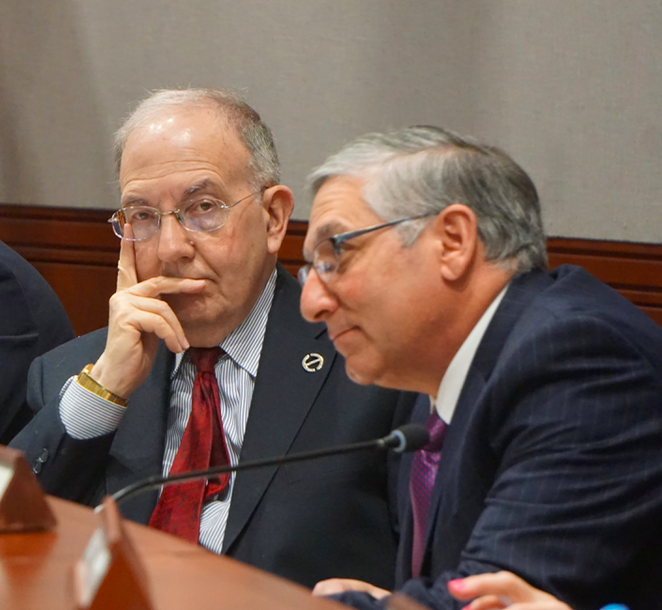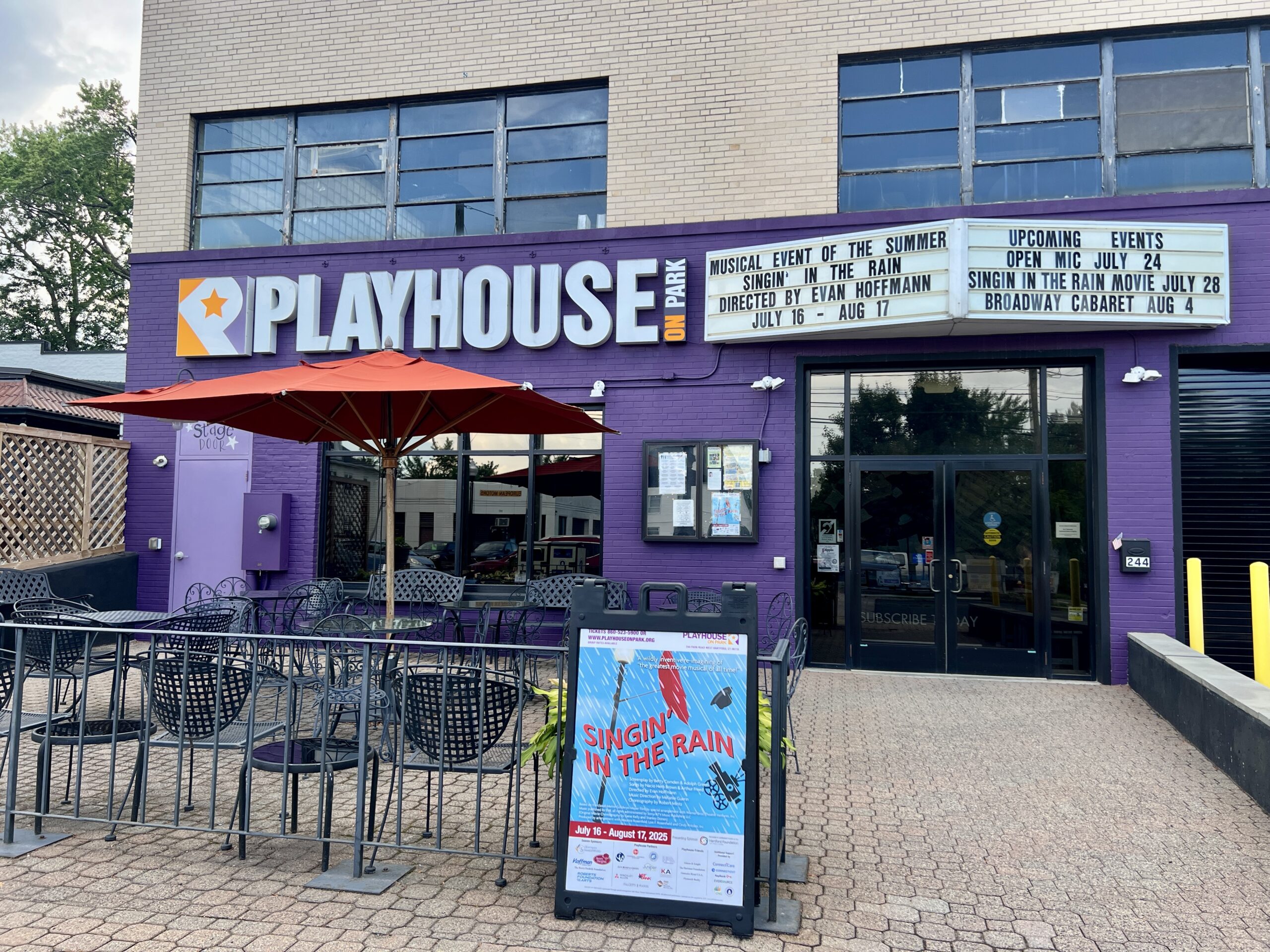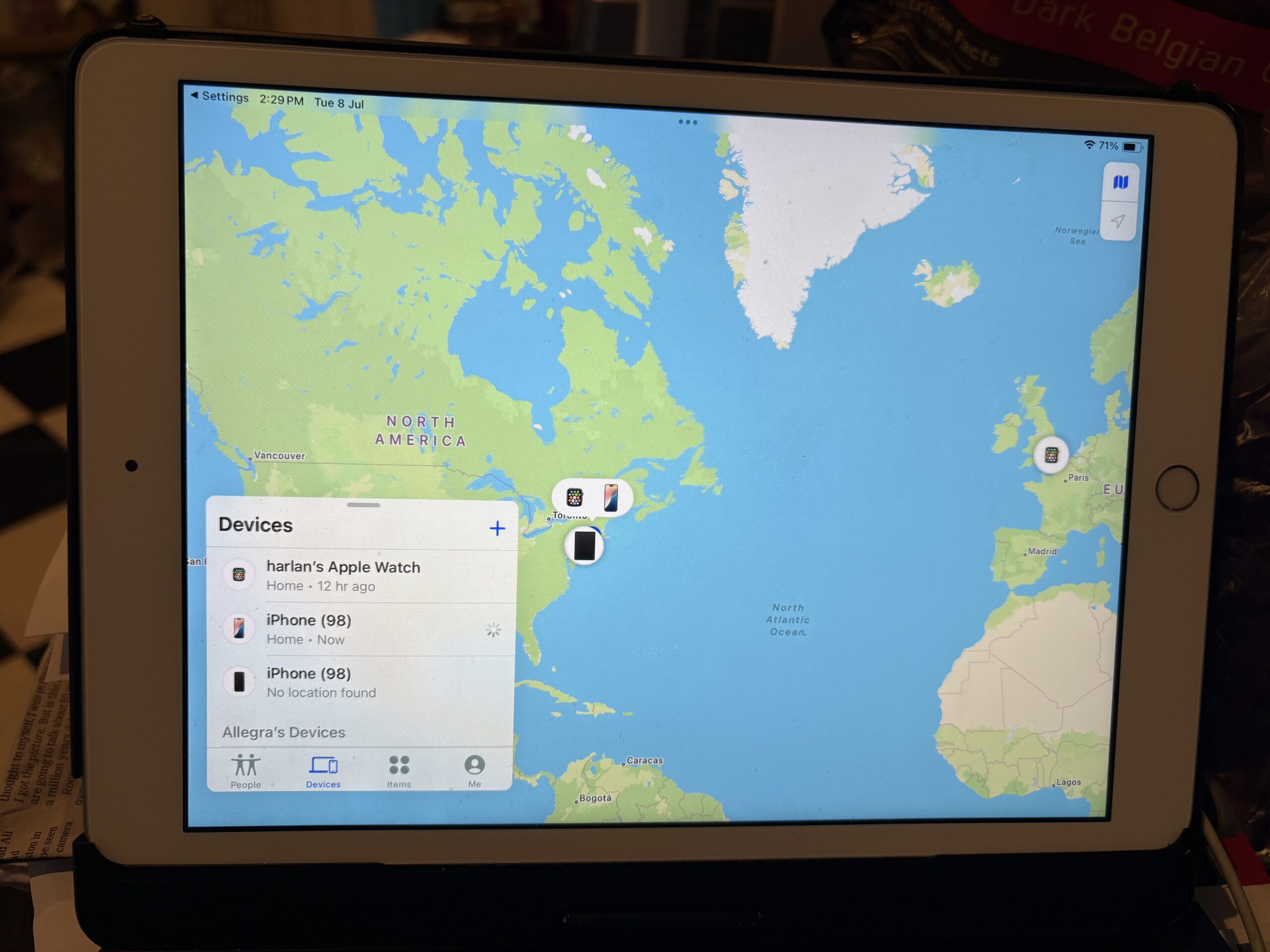Tolls Saga Continues as Democrats Postpone Vote

Audio By Carbonatix

This double-span bridge over Berkshire Road in West Hartford (viewed looking north) is one of the projects being considered for a toll as part of Gov. Ned Lamont's CT2030 plan. Photo credit: Ronni Newton (we-ha.com file photo)
The vote on tolls will not come before next week, the top Senate leader said Tuesday night, and the latest scenario calls for House and Senate to split the bill in two.

Senate President Pro Tem Martin Looney, left, and Senate GOP Leader Len Fasano are at odds on tolls. Photo credit: Mark Pazniokas, CTMirror.org
By Mark Pazniokas, CTMirror.org
Faced with the threat of a 30-hour debate by the Republican minority and a less-than-certain game plan by the Democratic majority, lawmakers have put off tentative plans for a Thursday vote on tolls legislation until at least next week, the top Senate leader said Tuesday night.
Both House and Senate Democrats remain unwilling to go first in debating the bill that would authorize truck tolls on a dozen highway bridges – an extraordinary acknowledgement of the continued distrust by members of each chamber that the other has the votes for passage.
Senate President Pro Tem Martin M. Looney, D-New Haven, said the latest scenario for attempting passage is to split the bill in two, each authorizing tolls on six bridges – one bill beginning in the House and the other in the Senate. The bills would be exchanged by each chamber like hostages.
“Both chambers would have to pass both bills,” Looney said.
The Republican minority leaders, Sen. Len Fasano of North Haven and Rep. Themis Klarides of Derby, said the machinations by the Democratic majority are an affront to the General Assembly.
“I thought last week’s flimflam was bad,” Klarides said, referring an earlier plan to attempt synchronized votes and debates of identical bills. “It was a miscarriage of the process. But this one is just beyond.”
Fasano said Republicans not only will debate the bills at length, but withhold typical courtesies that lubricate the machinery of legislating – such as waiving a reading the bill.
“They have a right to run any bill they want as the majority, but they don’t have a right to bastardize the system,” Fasano said. “I’m going to challenge them. They are going to read the bill [aloud]. They are going to read the amendments. They are not going to get away with this easily.”
Looney said the promise of a 30-hour filibuster will require preparation by both chambers. Senate Democrats will caucus on Thursday to talk about what may come next.
“We have to figure out a time next week to set aside 30 hours, if need be,” Looney said.
“The House will be begging for a 30-hour vote by the time this debate is said and done,” Klarides said.
Democrats control the Senate, 22-14, and the House, 91-60. Looney has told the governor he can produce 18 votes, enough for passage with the help of a tie-breaking vote by Lt. Gov. Susan Bysiewicz.
Republicans said Democrats have no grounds to accuse the GOP of dilatory tactics, since they are turning the process on its head.
“If you are not going to respect the institution, don’t ask me for respect,” Fasano said.
House Speaker Joe Aresimowicz, D-Berlin, could not be reached Tuesday.
The governor’s office declined to comment beyond Gov. Ned Lamont’s statement earlier Tuesday that his last communication with the leadership left him under the impression the vote would be Thursday.
Lamont and Looney spoke on Saturday.
The debate over tolls has turned into a saga.
A year ago, Lamont proposed a comprehensive system of tolls on cars and trucks at more than 50 locations on Interstates 84, 91, and 95, as well as the Merritt and Wilbur Cross parkways. It would have raised as much as $800 million annually.
When lawmakers refused to bring the measure to a vote, the administration countered with a downsized version of tolls on cars and trucks on 13 bridges. Legislative leaders could not find the votes for passage.
House Democratic leaders proposed a compromise accepted by Lamont and Senate Democratic leaders: tolls at 12 bridges, but only on tractor trailers. That would raise about $175 million annually.
“We had assumed the House would go first when we compromised. The compromise was offered by the House,” Looney said. “They declined to go first.”
The current plan is getting squeezed from both sides. Every Republican in the General Assembly promises to vote against any form of tolls – or new transportation revenue, for that matter. Some supporters of Lamont’s ambitions for a plan to spend more than $19 billion on transportation over 10 years grumble that the compromise raises too little money.
Reprinted with permission of The Connecticut Mirror. The author can be reached at [email protected].
Like what you see here? Click here to subscribe to We-Ha’s newsletter so you’ll always be in the know about what’s happening in West Hartford!



